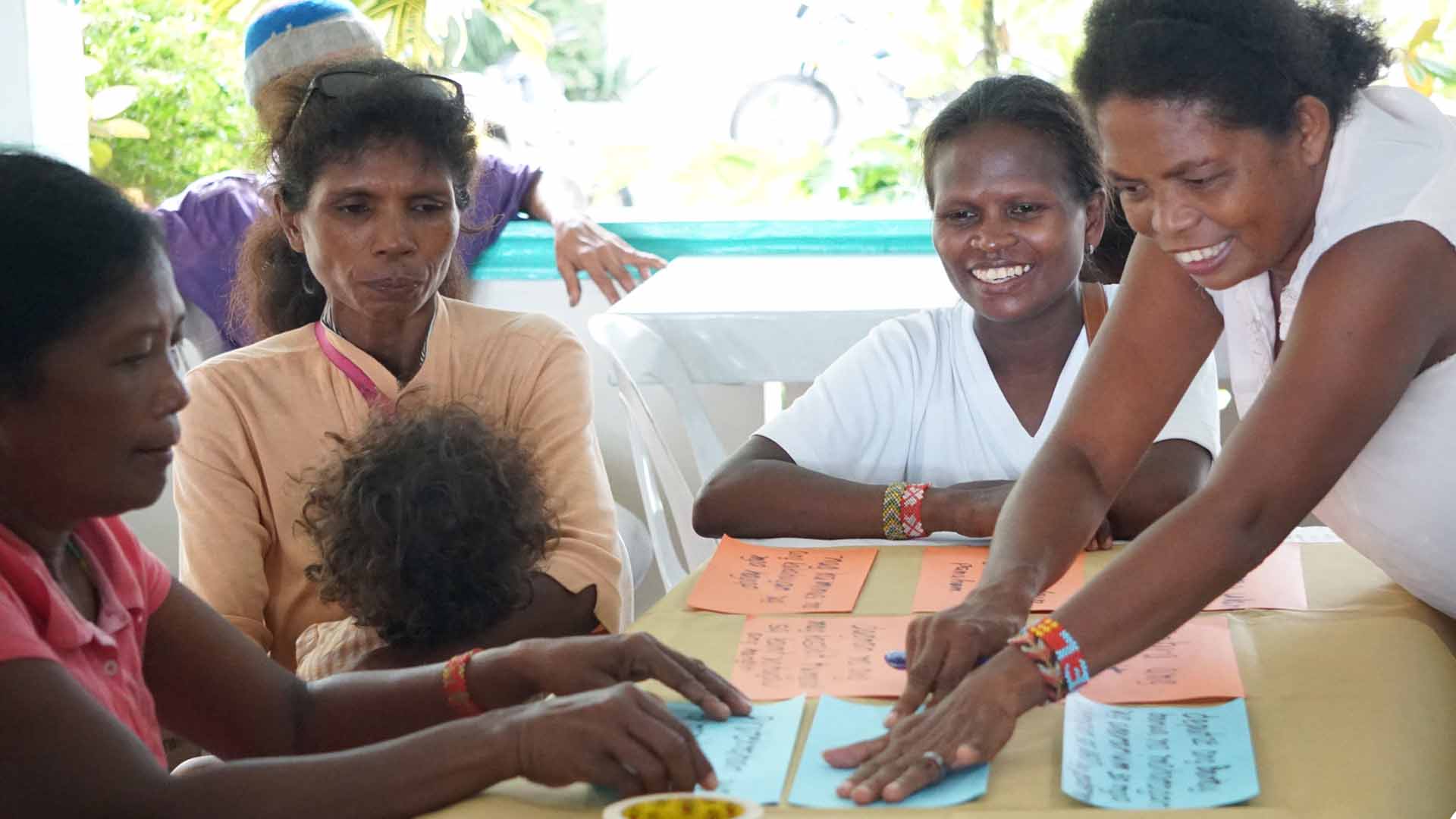Mimi Bungcayao, a mother, a mamanwa, and one of the leaders of the ‘bantay banwa’ or forest wardens in her tribe shares her thoughts on why she continues to be a forest defender.
We first met Mimi in 2018 during the introduction of Haribon’s Forest Governance project in Tandag City, Surigao Del Sur. Along with her community members, she attended the two-day orientation. Since that first encounter, Mimi has never ceased to amaze us.

On that same year, and despite being pregnant with her fourth child, she continued to eagerly participate in all activities the she believes will greatly benefit her tribe and community. As the tribal secretary and one of the few from the Mamanwa-Manobo who reached primary level education, she helped her tribe members write their names and assisted in facilitating learning activities for the project.
With a hammock on her bag for her newborn and toddlers, Mimi attended the planning session for the Forest Protection and Law Enforcement Plan in 2019 with great enthusiasm and dedication.
A fight for the next generation
For Mimi, life starts from, depends on, and ends in the forest. For her and her tribe, the forest is the source of life – food, water, air, medicine, livelihood, and the origin of the Mamanwa-Manobo tribe.
“Dili naku gusto nga ang akong anak mangutaa puhon, unsa ning Yakal” (I do not want my children to asked me what Yakal is in the future because they could no longer see it), said Mimi when asked why she continues to get involved in the conservation.
For Mimi, all this work for the forest is for the next generation.
Mimi shares that one of the biggest challenges of conservation work is the persistent forest-related illegal activities by her own tribe members and other migrants in the area despite local tribal policies in place.
As a Bantay Banwa tasked to lead forest protection through monitoring and reporting, being misunderstood by her own tribe is sometimes inevitable. “How can the other migrants follow the rules when our very people violate it,” Mimi laments.
Beyond the call of duty
On the project’s fourth year of implementation, Mimi recalled how the training activities conducted by Haribon helped them learn more about forest protection and policies. More importantly, through the program, she and several other members of the Mamanwa-Manobo tribe were deputized as forest wardens.

The deputization not only gives them authority as forest protectors but also helps in building confidence to exercise proper actions according to forest laws and tribal customs and traditions.
Since they have started their role as Bantay Banwa, Mimi attests that positive changes can be observed. Some of the migrants have also started following the tribe’s customary laws.
“Kun kami mansagda, kami dili na maingnan nga peke, anaa na man kami’y I.D” (If we reprimand [illegal activities], they could no longer say we are a phony, now that we have our I.D.s), said Mimi upon receiving her official identification card as a forest warden last year.
As with most of us, Mimi’s family along with other members of the Mamanwa has been greatly affected by the pandemic this year. Despite this situation however, Mimi continues to report for duty in the forest, following proper health and safety protocols. Together with her husband – also a deputized forest warden – they patrol the forests every morning, record findings, and report illegal activities.
While almost half of the world is on lockdown, Mimi and her husband persist to protect the forests that they also call home.
European Union supports the Kahugpungan Tribung Mamanwa-Manobo or KATRIMMA in protecting their forest through the Forest Governance Project (FoGoP) in partnership with Birdlife International and Haribon Foundation. The KATRIMMA is one of the two Indigenous People’s Organization (IPOs) in the Mt. Hilong-Hilong key biodiversity area who have undergone trainings required for deputation, forest monitoring, reporting, law enforcement and governance.





















